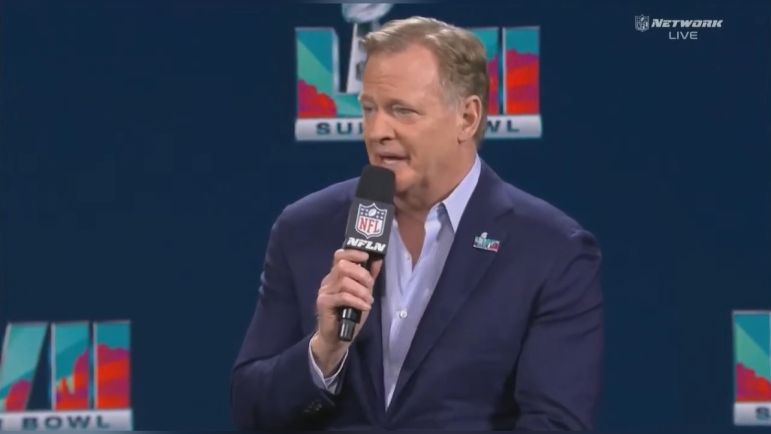After a rare trial in which commissioner Roger Goodell and owners Jerry Jones and Robert Kraft testified, a jury ruled against the NFL in a lawsuit revolving around Sunday Ticket. An eight-panel jury determined the NFL violated antitrust laws by colluding with DirectTV. They assessed damages of more than $4.7 billion, most of which directed towards the residential class.
Residential damages were actually at $4.7 billion, even more than $4 billion. That’s $700 million more.
— Meghann Cuniff (@meghanncuniff) June 27, 2024
The damages are high but fall short of the maximum of $7 billion.
A lawsuit that had been in the works since 2015, it’s a rare outcome that goes against the NFL. This suit had been thrown out, appealed, and brought back before heading to trial earlier this month. The plantiffs and defense rested Monday with deliberations beginning Wednesday before the jury reached its verdict a day later.
As shared by reporter Meghann Cuniff, the jury affirmed all liability questions against the league, saying DirectTV entered a “price-fixing” conspiracy” with the NFL.
The lawsuit originated with a California bar unhappy with the high price of Sunday Ticket, a number higher for establishments like bars. For consumers, it was also a high-priced option to watch every game. It was a critical resource for out-of-market fans wanting to watch their favorite team, something that impacted a Steeler Nation fan base that exists all over the United States and world.
Reacting to the verdict, the NFL said it was “disappointed” in the outcome and will appeal, confirming what was already suspected. The league is unlikely to have to pay anything until its appeals process is fully exhausted, a process that could take years.
“We will certainly contest this decision as we believe that the class-action claims in this case are baseless and without merit,” NFL spokesman Alex Riethmiller said in part.
Representing the plaintiffs, attorney Bill Carmody was thrilled with the outcome.
Aside from the damages, the ramifications of the case are murky. Consumers who bought Sunday Ticket should be entitled to a piece of that $4.7 billion in residential damages, though exact amounts, timeline, and process to receiving a check are unknown. The NFL could also change its Sunday Ticket model and offer a “per team” package at a reduced rate, an idea it reportedly rejected. Beginning last year, Sunday Ticket shifted from DirectTV to Google/YouTube.
Reacting to the news, legal analyst Michael McCann believes teams will get involved in selling their own broadcasts. In his article, he notes the league could also eliminate Sunday Ticket as an option to be bought and not providing a league-created alternative, reducing the number of games that can be watched by fans.
“In addition to appealing, the NFL will need to consider new broadcasting arrangements that feature teams competing in the sale of broadcasts,” he wrote. “The league has maintained that consumers will be worse off without the Sunday Ticket but has economic incentives to ensure the NFL continues its broadcasting dominance—even if that means exploring new ways of teams televising games to out-of-town fans.”
According to Albert Breer, there is a July 31 hearing on post-trial motions.
While this is a landmark moment, it’s not the last chapter of this lawsuit’s story.








